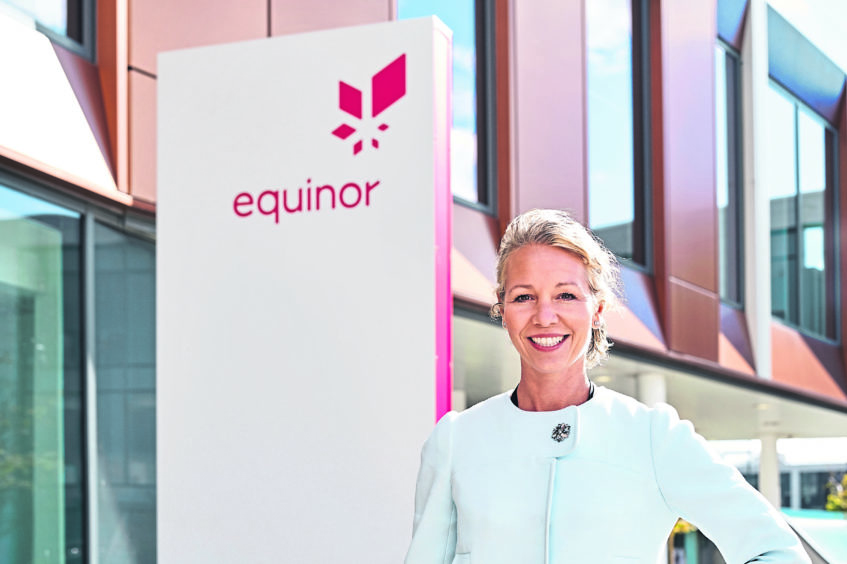
The Mariner field is a “natural fit” for Equinor’s portfolio, despite growing pressure on the energy transition and climate change.
Its start-up “reinforces” Equinor’s commitment as a UK energy partner, according to Ms Felin, which comes a year after Equinor changed its name from Statoil,
Equinor said the change was in line with its focus as a broad energy company, through projects such as Hywind, the world’s first floating offshore windfarm, situated off the coast of Peterhead.
However the operator said the start-up of a new heavy oil development like Mariner does not conflict with its broad energy focus, as both oil and gas and renewables are going to be important for the world’s future supply.
ALSO READ: Equinor reaches first oil from Mariner after £6.4bn investment
ALSO READ: Equinor looks to Rosebank and Bressay projects after Mariner
The firm is also hoping that its strides in digital technologies can make Mariner more efficient and bring down emissions.
Hedda Felin, Equinor’s senior vice president for UK and Ireland offshore, said: “It is a natural part of our portfolio. We welcome the dialogue around climate change very much. We have been pushing it and talking about it for a long time and we have changed our name to reflect that we are a broad energy company.
“We’re investing more and more in new energy solutions, that means renewable energy but also low-carbon oil and gas solutions ,so 20% of capex will be spent on that and 25% of our R&D budgets, so quite a significant part.
“We believe the energy mix will consist of oil and gas and renewables but what is important is that we carry out the oil and gas projects as efficiently as we can.
“We think we can have an impact on Mariner, we think we can produce it safely and more efficiently. We’re also using a lot of new technologies and digitalisation so that it can have a natural fit in our portfolio.
“That also continues the systematic work on lowering the carbon footprint of the field. It is quite efficient to be a heavy oilfield, but because it is a heavy oilfield we have to be bold when it comes to taking new investment in technologies that can lower the carbon footprint.”
Meanwhile Mike Tholen, upstream director at Oil and Gas UK, said the project will play an important role in the country’s energy needs going forward.
He said: “The Mariner field will contribute towards energy security for the next 30 years. With up to three billion barrels of oil in place, it contributes to industry’s shared ambition Vision 2035 – which looks to meet as much of the UK’s oil and gas needs from home-produced resources as possible.”
Recommended for you

